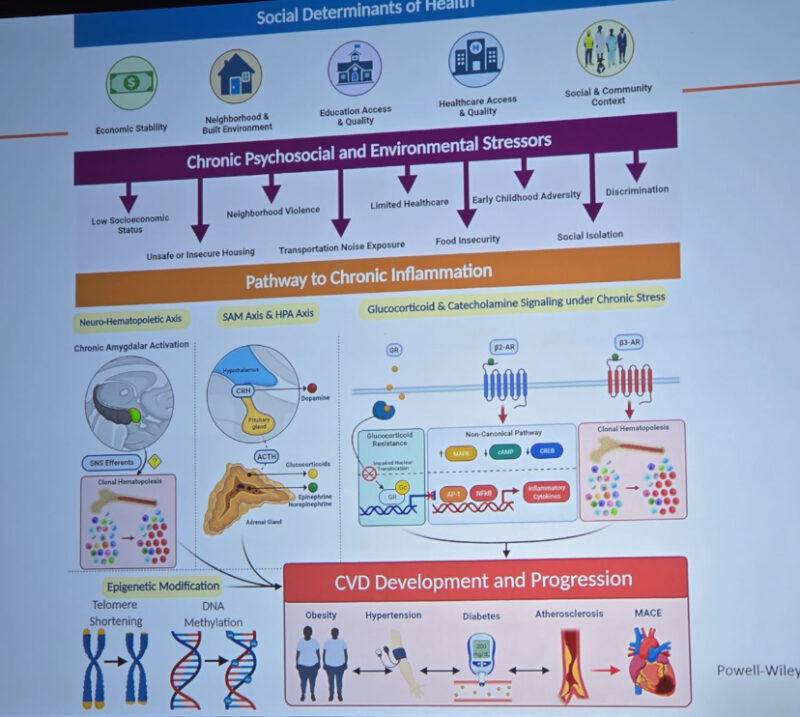Olubukola Ayodele, Consultant Medical Oncologist at the University Hospitals of Leicester NHS Trust, shared a post on LinkedIn:
“Let’s discuss the concept of allostatic load, a term that encapsulates the cumulative physiological stress endured by our biological systems as a result of prolonged exposure to environmental stressors.
Emerging research underscores a troubling trend: Black individuals often face more aggressive forms of cancer, with many patients diagnosed at advanced stages of the disease, leading to significantly poorer outcomes. While some of these disparities can be attributed to genetic factors linked to Western African ancestry, a growing body of evidence emphasizes the critical role of social determinants of health (SDH) in shaping the health landscape for Black communities.
These determinants include aspects such as economic stability, the quality of neighborhoods and built environments, access to quality education, and availability of healthcare services. Each of these factors acts as a persistent psychological and environmental stressor, contributing to chronic inflammation—an underlying mechanism that facilitates the development and exacerbation of cardiovascular diseases, obesity, hypertension, diabetes, and atherosclerosis.
For example, studies have shown that Black patients diagnosed with breast cancer face a staggering 23% increased risk of developing chronic heart failure following treatment with medications like anthracyclines and trastuzumab, largely due to these compounding social and health-related factors.
Recent findings presented at the San Antonio Breast Cancer Symposium further illuminate the issue, revealing that Black individuals, particularly those diagnosed at later stages of cancer, have high allostatic load. This significant observation highlights the physiological toll that environmental stressors exact on this population.
Nonetheless, there is hope: research suggests that engaging in regular physical activity can serve as a powerful intervention to mitigate high allostatic load. A compelling study by Olopade and her research team in Chicago found that Black individuals were less likely to participate in physical activities before receiving a breast cancer diagnosis.
This lack of engagement in exercise correlated with lower lifetime physical activity levels and poorer breast cancer outcomes. The findings revealed that even moderate exercise—amounting to about 14 to 30 MET hours per week—can dramatically improve breast cancer-specific mortality rates and enhance recurrence-free survival.
While it is crucial to acknowledge and address the complex web of institutional, structural, and social inequities rooted in social determinants of health—inequities that require sustained efforts to rectify—there is an immediate opportunity for us to equip ourselves with vital knowledge. By promoting and encouraging increased physical activity within our communities, we can take significant steps toward alleviating some of the health disparities faced by Black individuals.
Kindly repost!”

Dr. Olubukola Ayodele is a Consultant Medical Oncologist at the University Hospitals of Leicester NHS Trust, specializing in breast and genitourinary malignancies, including germ cell tumors. She is also an honorary Senior Lecturer at the University of Leicester and heads the Breast Cancer Clinical Trials Unit at the Leicester Cancer Research Centre.
Dr. Ayodele’s work includes numerous publications, clinical trials, and collaborative research projects on molecular drivers and biomarkers in breast cancer. She is a member of ASCO, ESMO, ACP and UKBCG.
